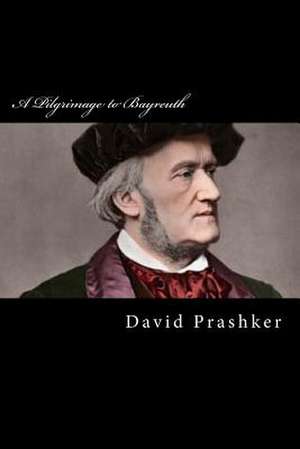A Pilgrimage to Bayreuth
Autor David Prashkeren Limba Engleză Paperback
Preț: 87.52 lei
Nou
Puncte Express: 131
Preț estimativ în valută:
16.75€ • 17.53$ • 13.94£
16.75€ • 17.53$ • 13.94£
Carte disponibilă
Livrare economică 10-24 martie
Preluare comenzi: 021 569.72.76
Specificații
ISBN-13: 9780615961415
ISBN-10: 061596141X
Pagini: 168
Dimensiuni: 152 x 229 x 9 mm
Greutate: 0.23 kg
Editura: Argaman Press
ISBN-10: 061596141X
Pagini: 168
Dimensiuni: 152 x 229 x 9 mm
Greutate: 0.23 kg
Editura: Argaman Press












